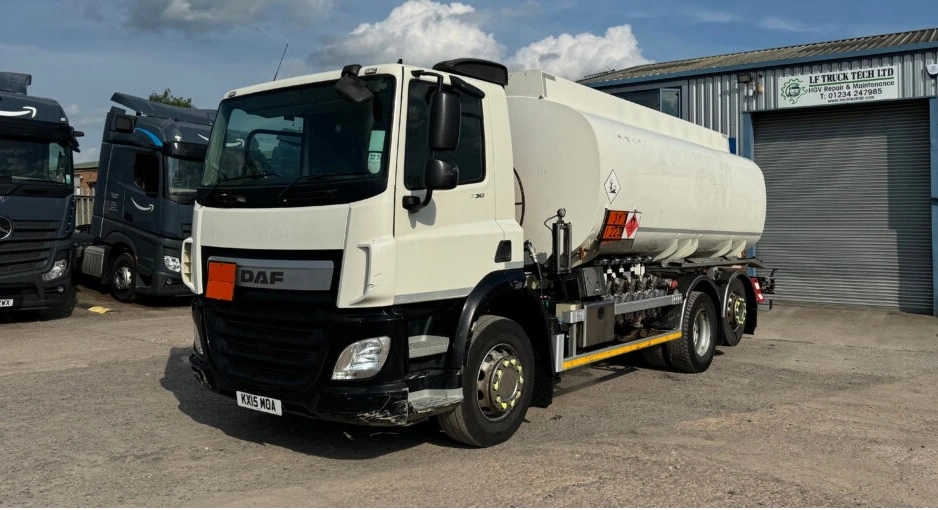
New Tankers For Sale
When it comes to propelling your business forward, investing in new tankers can be a game-changer. These powerful vehicles are not just a means of transportation; they are an essential tool for businesses in various industries.
From logistics and construction to agriculture and fuel distribution, new tankers for sale can significantly impact your business growth in more ways than one.
Advantages of Investing in New Tankers for Business Expansion
- Enhanced Efficiency: New tankers are equipped with the latest technology and innovations, resulting in improved fuel efficiency, reduced maintenance costs, and increased uptime. This translates to more productivity and cost savings for your business.
- Compliance and Safety: With constantly evolving industry regulations, investing in new tankers ensures that your business stays compliant with safety and environmental standards. This not only mitigates the risk of penalties but also enhances your reputation as a responsible and trustworthy business.
- Scalability: As your business expands, you need reliable equipment that can scale with your operations. New tankers offer greater capacity and flexibility, allowing you to meet growing demands and explore new opportunities in the market.
- Competitive Edge: In today’s competitive business landscape, investing in new tankers gives you a competitive advantage. With modern features and advanced capabilities, you can deliver superior service to your customers, setting your business apart from the competition.
Understanding the Types of Tankers Available for Sale
Embarking on a journey to purchase a new tanker for your growing brand or expanding enterprise can be the catalyst to drive your business smoothly into success. It’s crucial to comprehend the different types of tankers available to ensure that your investment aligns with your specific transport needs. So, what are your options?
Firstly, there’s the chemical tanker, designed for transporting various hazardous and non-hazardous chemicals. Its construction features advanced materials capable of withstanding corrosive substances, therefore ensuring safety and compliance with transportation regulations.
Moving on, the oil tanker is specialised for the transport of crude oil and its derivatives. Integration of innovative technology for spill prevention makes these tankers reliable for the safe movement of valuable fossil fuels.
Another type to consider is the food-grade tanker, engineered with hygienic materials to transport consumables like milk and vegetable oil. Sanitation and temperature control are at the forefront of their design.
Moreover, dry bulk tankers cater to the needs of carrying dry goods like grains, sugar, and cement, utilising pneumatic systems for loading and unloading.
Finally, we have gas tankers, which are strictly designed for transporting liquefied gases such as propane and butane. These vessels maintain precise conditions to ensure the gases remain stable during transit.
Understanding these options will gear you toward making an informed choice, ensuring that the new tanker you select is tailored to the nature and requirements of your transport tasks.
Factors to Consider When Purchasing New Tankers for Your Business
Investing in a new tanker is a decision that propels your enterprise forward, but myriad factors come into play to guarantee that this investment is sound and beneficial. Let’s explore what should be on your checklist when considering new tankers for sale.
Firstly, assess the capacity and dimensions of the tanker. It’s not just about maximum volume; you need to ensure that the size aligns with your transportation needs and the limitations of the roads you’ll use. Furthermore, consider the material of the tank. Stainless steel might be your go-to for durability and ease of cleaning, especially for chemical or food-grade transports.
Another critical factor is the design and features of the tanker. Look for advanced safety features, robustness in construction, and any additional specifications like insulation or compartmentalisation that might benefit your transport operations.
The chassis and suspension systems are also paramount, impacting the tanker’s manoeuvrability and stability on the road. Opt for a chassis that promises longevity and a suspension that can withstand the rigours of your specific haulage challenges.
Maintenance and operational costs should not escape your attention. Remember, the purchase price is just the beginning of your investment. Project the long-term costs such as fuel efficiency, repair, maintenance, and potential downtime to ensure financial feasibility.
Last but not least, the manufacturer’s reputation and warranty offerings can play a pivotal role. A trusted manufacturer with a comprehensive warranty can offer peace of mind, ensuring that support is available when needed.
Considering these factors with due diligence will streamline your purchase and set your business en route to a profitable and smooth-running future.
How New Tankers Enhance Operational Efficiency and Cost Savings
It is no secret that efficiency and cost savings are crucial for achieving success. New tankers offer innovative features that enhance operational efficiency and contribute to substantial cost savings.
Firstly, new tankers are built with advanced materials and design, resulting in improved fuel efficiency. This not only reduces the operational costs but also minimises the environmental impact, aligning with sustainability goals.
Moreover, the latest tankers are equipped with cutting-edge technology that optimises route planning and load distribution.
This ensures that resources are utilised effectively, reducing unnecessary mileage and operational inefficiencies. Furthermore, these new tankers are designed to minimise product loss and damage during transportation.
The use of state-of-the-art safety features and handling mechanisms ensures that the delivered product maintains its integrity, reducing financial losses associated with product wastage.
By investing in new tankers, businesses can streamline their logistical operations, enhance productivity, and ultimately reduce operational costs, leading to improved profitability and competitiveness in the market.
Exploring the Latest Technological Advancements in New Tankers
The burgeoning advancements in technology have significantly transformed the capabilities of new tankers, introducing a wide range of sophisticated features aimed at optimising performance and safety.
One of the prominent technological advancements is the integration of real-time monitoring and tracking systems. These systems provide accurate insights into the tanker’s condition, location, and performance, allowing for proactive maintenance and efficient route management.
Additionally, new tankers are equipped with advanced safety mechanisms such as stability control systems, rollover prevention technology, and enhanced braking systems.
These features ensure safer transportation of goods, reduce the risk of accidents, and protect both the cargo and the environment.
Furthermore, the introduction of smart loading and unloading systems has revolutionised the operational efficiency of new tankers.
These systems automate processes, reduce loading times, and minimise human errors, contributing to overall operational efficiency and cost savings.
Incorporating these technological advancements in new tankers not only enhances operational effectiveness but also promotes a safer and more reliable transportation process, positioning businesses for sustained growth and success in the competitive market.
The Environmental Benefits of Upgrading to New Tankers
Embracing the future of road transportation begins with being environmentally conscious, and securing new tankers for sale is spearheading this initiative for growing brands and expanding enterprises. The old adage ‘out with the old, in with the new’ resonates strongly here.
Modern tankers come equipped with cutting-edge technology that reduces emissions, thereby supporting cleaner air and a healthier planet.
These innovative vehicles boast engines that meet stringent Euro 6 standards, ensuring that businesses do their part in combating air pollution.
Moreover, the aerodynamic design of new tankers plays a pivotal role in fuel efficiency. By reducing drag, these sleek machines cut fuel consumption significantly, translating to fewer greenhouse gases released into our atmosphere.
This improvement isn’t just good for the Earth; it’s also great for a company’s bottom line. Imagine the cost savings and positive brand image that come from a fleet known for its eco-friendliness.
Additionally, improved operational efficiency brought on by the latest onboard diagnostics helps in maintaining optimal performance, meaning less unexpected downtime and more reliability.
It’s also worth noting that modern tankers are often manufactured using sustainable methods and materials, adding another layer to their environmental benefit. They may include components made from recycled materials, and their construction process strives to reduce waste.
As society gravitates towards more sustainable practices, companies investing in these new assets are not only trendsetters but also responsible corporate citizens paving the way for a greener tomorrow.
Last Thoughts: Accelerating Business Growth with New Tankers
The journey to business expansion is paved with smart investments, and integrating new tankers into a fleet can be a game-changer for growth-focused companies. The rationale is clear: Updated equipment bolsters efficiency, and efficiency begets productivity.
When businesses replace ageing vehicles with state-of-the-art tankers, they unlock the potential for increased operation speed and improved service quality. These advancements provide a competitive edge in a market where clients value swift and reliable services.
Furthermore, the introduction of new tankers can broaden a company’s service capabilities. Next-generation tankers come with diverse specifications and features which might include advanced metering systems, multifunctional compartments, and enhanced safety mechanisms.
Thanks to these features, enterprises can safely transport a wider range of products, from hazardous chemicals to food-grade liquids, diving into new market segments and creating additional revenue streams.
But perhaps the most significant aspect of acquiring new tankers for sale is the message it conveys to stakeholders. It is a declaration of a brand’s commitment to growth, innovation, and a sustainable future.
Clients, partners, and even potential investors take note of such proactive steps, often leading to increased trust and business opportunities. Thus, by investing in modern transportation solutions, companies are not just upgrading their fleets; they are steering their business towards a brighter, more successful horizon.



